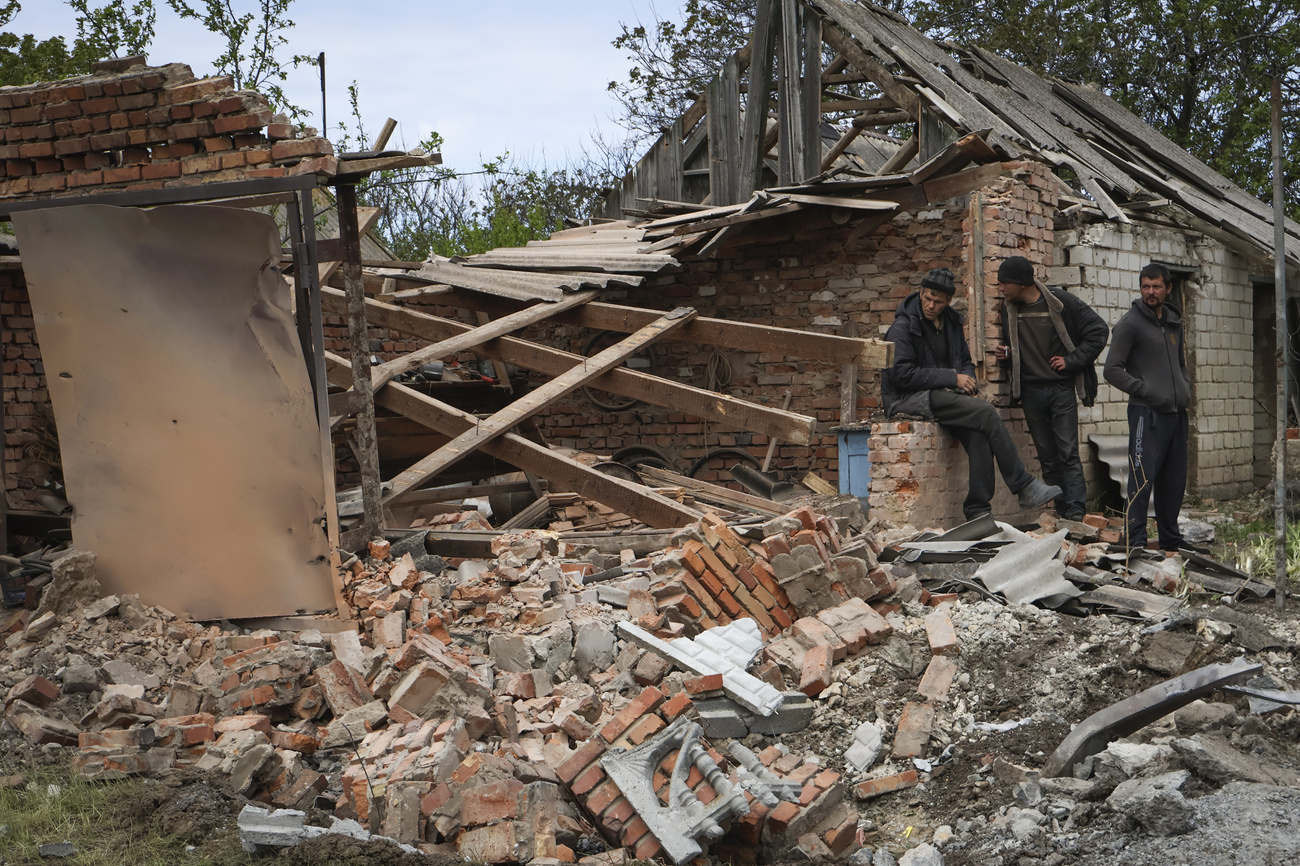
Switzerland chairs UN meeting on Zaporizhzhia nuclear risks

A UN Security Council meeting, chaired by Swiss Foreign Minister Ignazio Cassis, has discussed the precarious situation at the Zaporizhzhia nuclear plant in Ukraine.
The Director-General of the International Atomic Energy Agency (IAEA), Rafael Grossi, told the Council on Tuesday that “the nuclear safety and security situation at the Zaporizhzhia nuclear power plant […] continues to be extremely fragile and dangerous”.
“Military activities continue in the region and may well increase very considerably in the near future,” he said.
Grossi has tried for months to craft an agreement to reduce the risk of a catastrophic accident from military activity like shelling at the plant in southern Ukraine, which has been occupied by Russia for more than a year.
+ What a nuclear war would look like
His five-principle plan stipulates that there should be no attack on or from the plant and that no heavy weapons such as multiple rocket launchers, artillery systems and munitions, and tanks or military personnel be housed there.
While Russia said it would do all it could to protect the power plant, it did not explicitly commit to abide by Grossi’s five principles. It also denies that it has military personnel at the power plant.
Duty to civilians
Cassis, who was chairing the meeting as part of Switzerland’s one-month presidency of the Security Council, said Switzerland welcomes the IAEA’s ongoing commitment to protecting civilian nuclear facilities in Ukraine.
+ More on Switzerland’s UN Security Council presidency
“We are all aware of the risks to civilians when a nuclear power plant is located in a war zone. It is our duty to protect civilians,” Cassis said.
“We are discussing a pragmatic and targeted approach here. I am convinced that this is an important contribution in this crisis situation.”
During the session, Switzerland also reiterated its condemnation of Russia’s military aggression against Ukraine and any attacks on civilian infrastructure. Switzerland also again called on Russia to withdraw its troops from Ukrainian territory.

In compliance with the JTI standards
More: SWI swissinfo.ch certified by the Journalism Trust Initiative



























You can find an overview of ongoing debates with our journalists here . Please join us!
If you want to start a conversation about a topic raised in this article or want to report factual errors, email us at english@swissinfo.ch.